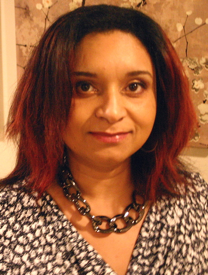Expert Help for OCD
Take Your Life Back from OCD
Offering expert treatment for all types of OCD, including unwanted obsessional thoughts. Our OCD treatment program is typically 10 weeks. We offer twice-weekly sessions, groups, and intensive programs. Intensive program can be in person or online. Low cost options available. Contact us...
Behavioral Wellness Clinic
392 Merrow Rd, Suite E,
Tolland, CT 06084
Office: (860) 830-7838
New England
OCD Institute
OCD Therapist Training Program

The start day for our next training will start on Wednesday, May 10, 11 am EST. Thereafter, we will hold trainings on Wednesday mornings from 11-12 noon for a total of 12 weeks, with an optional 13th meeting on a special topic (i.e., kids with OCD). The cost is $675 and can be paid online. Up to 13 CE's are available through the Connecticut Psychological Association (CPA).
Please contact us if you would like to join our next OCD training course. Space is limited. The meetings will held be in our Zoom room.
Comprehensive Training
At the New England OCD Institute, four years ago we offered our first online, international OCD training, in partnership with IOCDF and the Peace of Mind Foundation. We have since offered several more trainings to clinicians in the US and internationally, and it has been a tremendous success. Read about more it:
Turner, E. & Williams, M. T. (2019, Summer). OCD Training goes global: Working with therapists in Pakistan. International OCD Foundation Newsletter, 33(2), 8-9.
Participant Qualifications
Participants should have at least a master's degree in a mental health related field and some experience working with people with serious mental illness. Some graduate student spots are available. Participants must also be proficient in English.
Program Overview
The training program will include up to 13 hours of instruction on OCD facts, assessment and treatment, as detailed below. Participants must have good internet service with video capabilities. Sessions should occur in a quiet, private place, on a laptop not a cell phone. Headphones are recommended.
Topics Covered
- Facts about OCD, including prevalence and comorbidity.
- OCD symptom dimensions and subtypes, including typical obsessions and compulsions for each symptom dimension.
- Overview of various OCD treatment options.
- Collecting important clinical info from patients and relevant family histories.
- Useful self-report measures to help establish severity and track progress.
- How to administer the YBOCS-2 checklist.
- How to administer the YBOCS-2 severity scale.
- How to make a hierarchy and SUDS scale.
- How to conduct in vivo exposures.
- How to conduct imaginal exposures.
- Troubleshooting & ethical issues in the treatment of OCD.
- Religious and cultural issues in OCD.
- Working with kids with OCD.
Preparation
For the training, we will use the following materials:
- These manuals:
- Foa, E. B., Yadin, E., & Lichner, T. K. (2012). Exposure and Response (Ritual) Prevention for Obsessive-Compulsive Disorder: Therapist Guide. Philadelphia: Oxford University Press.
- Yadin, E., Lichner, T. K., & Foa, E. B. (2012). Treating Your OCD with Exposure and Response (Ritual) Prevention: Workbook. Philadelphia: Oxford University Press.
- Williams, M. T. & Wetterneck, C. T. (2019). Sexual Obsessions in Obsessive-Compulsive Disorder: A definitive step-by-step guide for understanding, diagnosing, and effectively treating OCD. Oxford University Press.
Group Supervision
There is an optional drop-in group supervision component for an extra fee. It includes online weekly group supervision of cases for half an hour, with up to 6 people per group meeting. At the first meeting, each participant will introduce themselves and present their OCD case and conceptualization to the group for discussion. Subsequent meetings will focus on the treatment of these patients and troubleshooting any issues that arise.
- Participants will prepare and submit a case conceptualization of an OCD client that includes:
- Relevant history
- Description of the problem and diagnoses
- Client strengths and resources
- Potential obstacles to treatment
- A detailed treatment plan
- Operationally-defined (measurable) goals
- Planned data collection to assess treatment efficacy over time for each goal


